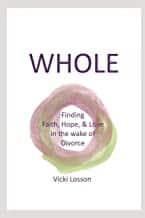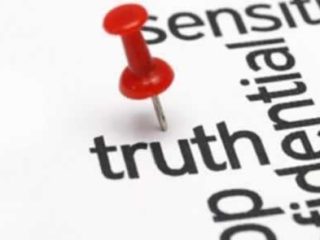Often, when a marriage — or anything else in life — is in trouble we turn to our faith for help. We pray and we may meet with the pastor or counselor and beg for a spiritual magic pill to ease our pain. The problem is that too often by the time we are seeking help, irreparable damage has been done. The hearts have been broken; walls have come up; and we can no longer find any love, respect, or admiration left in our hearts for our spouse.
Often in our church family, we go right to work trying to repair the marriage. There are multiple Scriptures that speak to the importance of marriage, so the church takes on the task of teaching the people the importance of the marriage. Books, Bible studies, and seminars abound on how to have a great marriage. I completely agree that it is important to do all we can to protect a marriage and hold families together. However, we must also acknowledge that sometimes the damage is terminal.
Let’s try a parable. A marriage is like a car rolling down life’s highway. Husband and Wife are driving in their Marriage Car. The sun is shining. The weather is clear. They add a child or two and keep on cruisin’. Now the whole family is cruisin’ down the road of life together in their Marriage Car. Then comes a bump in the road. Maybe a lost job, an affair, debt, or a sick parent. Maybe one or the other has slipped into untreated addiction or depression. Suddenly, the Marriage Car is careening across the lanes, each time coming closer and closer to the ditches, each time struggling to bring the car back on to the road. Finally, they fly off the road and smash head on into a tree. If this were an actual car accident instead of a metaphorical accident, who would the emergency dispatcher send? Someone to fix the Marriage Car or someone to treat the wounded?
When it comes to car crashes, we seem to know intuitively to treat the injured people first and the equipment second.
Most faith communities immediately try to fix the Marriage Car, leaving the people involved suffering. This approach is sort of like sending a mechanic to the sight of an accident to fix the vehicle while ignoring the bleeding or minimizing the wounds of the individual souls. Well-intended, loving people want to see others healed. The danger is that sometimes we rush into healing mode before we have fully assessed the damage.
I have observed countless people who love God but who walked away from their faith communities feeling misunderstood, burdened, and shamed in the wake of divorce. When it comes to car crashes, we seem to know intuitively to treat the injured people first and the equipment second. However, when a marriage crashes, often the injuries look more like anger, resentment, and apathy. All of which are masking deep wounds — some of which may be from as far back as childhood. Adding a to-do list from even the best marriage wisdom can feel like bricks being heaped on to already heavily burdened hearts.
Traditionally, the church and many in society as a whole see “the marriage” as the goal, and in our rush to save the marriage, we risk sacrificing the wounded.
Saving marriages, like saving people, is a God-sized job. Our job as people is simply to love others. We can value the Marriage Car, but the people must be our priority. We invite them closer and allow them the freedom to respond to that invitation or not. God allows free will and so should we.
My friend and pastor, Aaron, has referred to marriage as an Idol, like a Golden Calf of the church. He went on to say that as God’s body here on Earth, the church has become so focused with the institution of marriage that we miss the purpose. At first, this description surprised me, but the more I thought about it and reread Genesis 1 and 2, the more evidence I saw.
Going back to the very roots of marriage, we see God’s purpose. By creating “man…both male and female they created them” (Genesis 1:27), God is giving us a glimpse into the kind of intimate connection that God lives out in the Trinity. Making us male and female is meant to provide intimacy, including and beyond mere sexual intimacy. It is the space created for closeness and partnership. A place for vulnerability and connection at the heart level — deep to deep and soul to soul. Companionship that loves and supports each other. Enjoying the differences and investing in a deeply connected partnership allows for bad days. It challenges and encourages. The intimacy in marriage is a gift to every person who chooses it, providing the opportunity to see and be seen clearly.
The story of Adam and Eve shows them naked in the garden and unashamed prior to the “knowledge of good and evil.” They hid nothing from one another. That is a relationship worth fighting for. But how many of us have ever experienced or believe in a marriage like that?
Since its inception, marriage has been twisted by power, greed, modern media, and even the church. We have, at times, made it into something ugly, something to be navigated and manipulated, like a game with a winner and loser. Throughout Biblical history, we see many required to put on a brave face in marriage. We applaud people for living loveless lives, suffering abuse, and enduring misery. We look to Biblical examples like Abraham and his wife’s servant Hagar or Esther and her year of beauty treatments, and we accept those examples as evidence that marriage can be used for multiple reasons – even though that isn’t what the Creator intended.
A successful marriage cannot be defined simply by the absence of divorce, and a failed marriage is not limited to a marriage that ends in divorce. I know many people who take pride in their long-lasting, miserable, separate-bedrooms, lover-on-the-side, workaholic, alcoholic, shopaholic, never-together marriages. Most of those people are not treated with the same disdain as divorced people. To the contrary, they are often applauded and viewed as a good example of commitment in some church circles. However, according to God’s design, those marriages have failed just as much as one that ends in divorce.
I think we can do better. I think we must do better.
Adapted from WHOLE: Finding Faith, Hope, & Love in the Wake of Divorce. Copyright (c) 2020 Vicki Losson, Used with permission.
Get the Book
Vicki Losson is an author, coach, and speaker who been leading bible studies and small groups specifically geared toward divorce recovery and single adults since 2001. Her first book, WHOLE: Finding Faith, Hope, & Love in the Wake of Divorce was born from personal experience and the experiences of those God has brought to her through small groups, mentoring, and her company, Foundations Coaching & Consulting, LLC.













